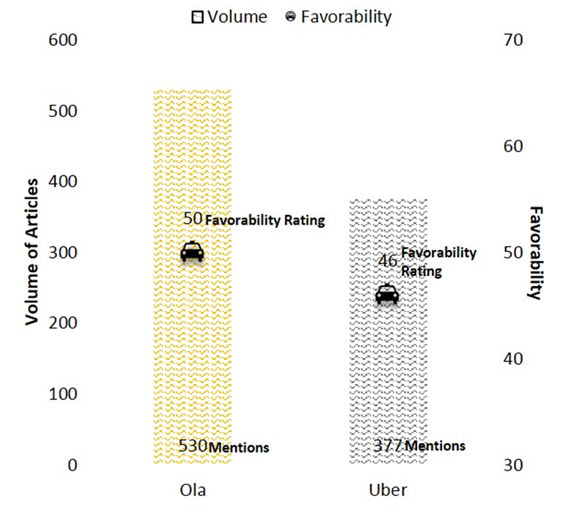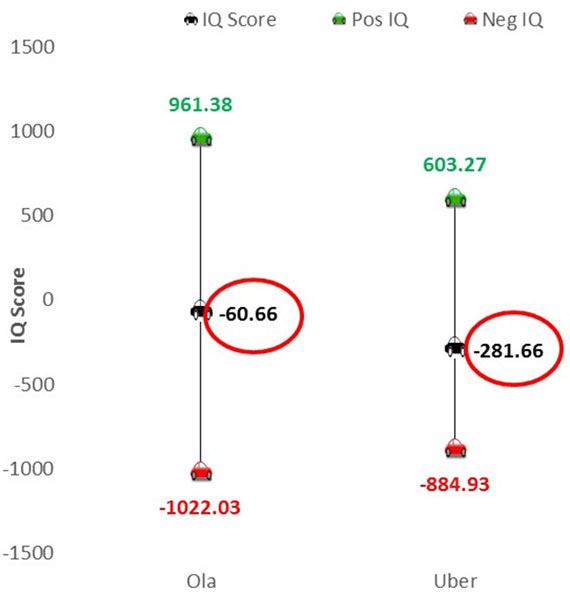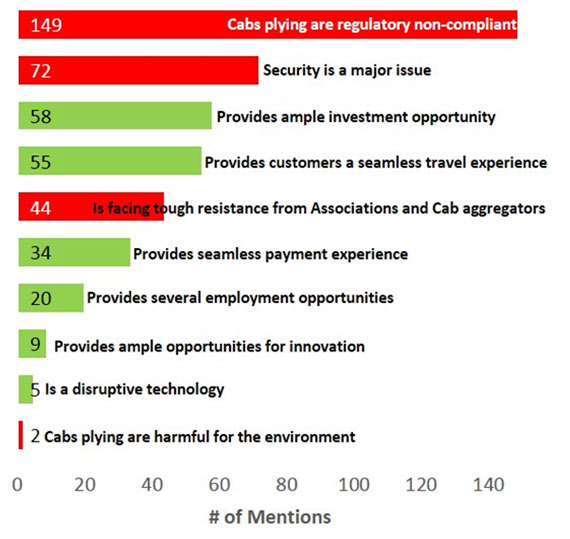Indian media gives homegrown Ola a better ride than Uber
PR News
Paarul Chand
App based car ride services such as Uber and Ola Cabs certainly grab headlines in India. The under 30 co-founders of Ola, recently made it to the richest Indian list and this week Chinese taxi hailing firm, Didi Kuaid, invested in Ola Cabs.
A study by CARMA International, on the media sentiment around app based cabs, across July and August, 2015 shows Ola Cabs faired better for volume of mentions (58% Share of Voice ), but more importantly had stronger favorability rating (50 rating). Faced with the issue of women safety, Uber cornered 42% of SoV with 46 favorability rating, which CARMA rates as unfavorable.

Ola Cabs also had a better media IQ score than Uber. CARMA rates its Media IQ score that shows PR impact based on volume of coverage, favourability and impressions as -60.66, better than a sharply weak Media IQ (-281.66) for Uber. Both companies, however, remain in the negative IQ zone :

Issues around Uber and Ola
The break up of issues around Uber and Ola shows that the media reported positively on customer convenience, even as security and regulatory concerns dominate negative comments :

News Sources for Ola and Uber
Positive influencers
The report also analyzed the sources of positive and negative news about Ola and Uber. Positive sentiment, quite naturally, came from company spokespersons and partners who defended the brands.
Two-thirds of the comments from think tanks were favorable for the ride sharing industry. For instance, Kartik Hosanagar, a professor at the Wharton Business School said, "Uber has certainly raised the bar for transport companies around the world” (Economic Times, 31 July, 2015).
Surprisingly, even though customer convenience made up 49% of the positive messaging, customers do not dominate media influencers for the two brands.
Negative Influencers
Proving once again that the Government is the biggest operating environment for any business, government officials were the most vocal and largely unfavorable set of influencers (144 unfavorable comments). Nearly three-fourth of their comments incriminated the app based cab services on a range of issues including use of diesel vehicles in Delhi, legal cases, safety of women and non-compliance of other transport rules.
Obviously enough, trade and business associations representing the taxi industry and regulators were clearly influencers who did not put forward a single positive comment for the app based cab services companies.
If you enjoyed this article, you can subscribe for free to our weekly event and subscriber alerts.
Featured

PR professionals share their views on journalists publicly calling them out on story pitches

Auto blogger renders unconditional apology to Value 360 for defamatory posts

Hottest Indian startups of 2020, Paytm, Dreams 11 lead the charge: Wizikey Report




